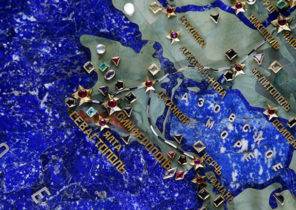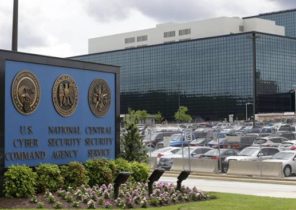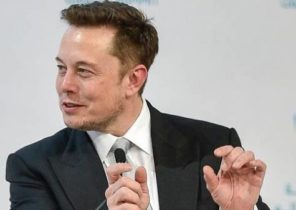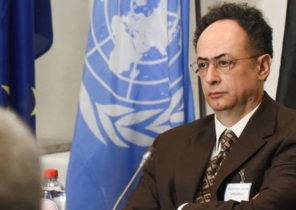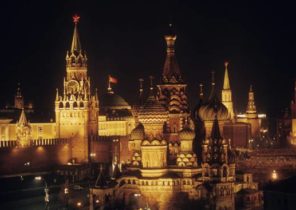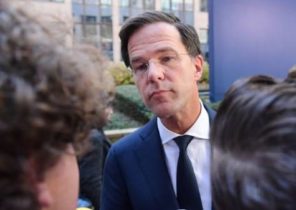Moscow — a handful of Russian companies have suffered from lower oil prices and caused by a coronavirus mode of self-isolation as well as Rosgeologia, the country’s largest firm engaged in exploration.
In the beginning of the year “Rosgeologiya” preparing for the conclusion of contracts in the oil and gas sector for a total amount of $ 400 million. However, these tenders were cancelled or postponed until prices recover and as a result of “Rosgeologiya” forced to sell their assets for millions of dollars to provide cash flow. According to Alexander Shadrin, the official representative of “Rosgeologia” taken quarantine measures to contain the outbreak of coronavirus can also break the existing supply chain and disrupt regular work throughout the country in areas where drilling operations.
“If to speak about the crisis in the field of oil, the situation got more complicated”, — he stressed.
The decline in Russia began in March, when the regime of self-isolation in China and in other places due to the spread of coronavirus was the cause of the decline in oil prices. The fluctuations of Russian President Vladimir Putin when deciding to accede to the actions of Saudi Arabia and other major producers to curb production, has exacerbated the problem, causing the price of oil reached the lowest level during the past two decades, and then only slightly recovered.
Today, the economic pain is spreading rapidly, while Russia, a third of whose budget is formed by oil revenues, was ill-equipped to provide the kind of economic support, which is provided with respective programs in the West.
“This epidemic has dealt a severe blow to the economy, — admitted g-n Putin during a video conference with regional governors.
According to the environment in Russia recorded 308705 cases of infection with coronavirus (this is the second in the number of infections the result after the United States) and 2972 deaths. In comparison with April, the unemployment rate has doubled and the number of unemployed amounted to 1.4 million, but Mr. Putin warned that the most difficult period is still ahead. According to him, the impending recession may exceed the recession of 2008-2009, when over the period of growth, driven by high oil prices, and when the gross domestic product of the country declined by 7.8%.
Maxim Reshetnikov, Minister of economic development, believes that the regime of isolation is costing the Russian economy $ 1.3 billion due to lost production volumes, while the PMI (purchasing managers index), a key measure of economic activity, fell in April to its lowest level since the start of fixing it in 1997.
The consequences of a pandemic coronavirus now threaten long-term plans of Mr. Putin to strengthen the Russian economy and support the declining level of popularity of the Russian President. Originally it was planned to spend $ 400 billion on infrastructure projects, including the creation of new highways and high-speed rail lines. According to the government, the volume of National projects will need to be reviewed, however, their implementation, however, will continue. The same can be said about the plans of Mr. Putin on a series of constitutional amendments that could allow him to remain in power until 2036.
PIK, Russia’s largest developer, expects a leading role in the implementation of the building programme this year the creation of 250 million square meters of housing across the country. However, quarantine measures temporarily stopped all construction in Moscow and Moscow suburbs, as experts of this company believe that the income of the construction sector in April will decrease by 50% or even 70%, which is traditionally the best month for sales. However, the situation may deteriorate further.
“The biggest fear is the question of whether the owners of houses and apartments to service their debts on a mortgage loan”, — said Yuri Ilyin, the Vice-President PEAK, responsible for capital markets and corporate Finance.
A double blow in the form of mode samozasiti and low oil prices have exacerbated old problems such as poverty and decline in living standards.
To ease the pain, Mr. Putin last week announced that the government will offer tax incentives and subsidized loans to businesses, and also pay additional money to families with children.
Another problem is that low oil prices strike not only the Russian budget and on quotations of the ruble, this year is one of the weakest currencies in the world, but also the national welfare Fund in the amount of 165 billion dollars, accumulated during the years of stable oil prices. Lower oil prices means less revenues to the Fund, while the officials are cautious in its use, given the uncertain Outlook regarding oil prices. While he had taken $ 26 billion.
“Putin does not want to use money from the national welfare Fund” because it was mainly used for the payment of the state pensioners which go to the core of his electorate, said Leon Aron (Leon Aron), Director of Russian studies located in Washington, D.C., research center, “American enterprise Institute” (American Enterprise Institute). “If he is serious to spend the money from this Fund, they will end very quickly,” he added.
At that time, as state-supported major oil companies able to withstand the impact, smaller companies, which account for about 4% of Russia’s oil, are on the brink of ruin. According to the Russian Association of independent oil and gas companies, 128 of 132 independent companies go bankrupt. In Russia the number of people employed in this sector totals more than a million people.
Meanwhile, some banks are concerned about how the downturn in [revenue from] petroleum and coronavirus pandemic will affect the economy of the whole country. Andrey Kostin, Chairman of state-owned Bank VTB, the country’s largest lender urged the government to more aggressively support business and citizens at the expense of compensation for lost income. According to the International monetary Fund, the Russian program for the provision of fiscal incentives is approximately 2.8% of GDP, while accepted in the United States, measures of this kind constitute about 11% of GDP. Russian officials say that the aid package will be increased.
37-year-old Tatiana schepina, which deals with the organization of concerts in Russia and all over Europe for children with disabilities, were left without work, as its the largest sponsors in early April ceased to transfer funds to. Today she is trying somehow to make ends meet — to feed his 9-year-old son and provide a monthly payment of $ 170 for my car.
“Bank employees call me every day and threaten to take my car,” she said. She also added that in social networks, she started to ask us to provide assistance in the form of food.
Another troubling sign for Mr. Putin, reports that a strict regime of isolation imposed to curb the spread of the coronavirus that causes protests among young Russians struggling to make ends meet.
“People are already pushed to the limit… they are in a desperate situation,” said Igor Pospelov, head of the regional office supporting of business non-profit organization “OPORA” in the city of Kirov in Western Russia.
In Moscow the 32-year-old Urusai Ramil (Ramil Uruzayev) says he can hold out for another month, saving 50 of its employees that provide services in the area of cleaning of restaurant furniture. His biggest client, the restaurant chain “Burger king”, is closed, with the result that he was left without cash, but is required by law to pay their employees wages that still do.
According to Mr. Urazaeva, he tries to get out somehow, having only a small part of his usual income of 80 thousand dollars per month. However, he still needs to pay 8 thousand dollars a month for rent, while a weaker ruble has made 20% more than the used to clean.
“How to do business in such conditions?” — he asks.

